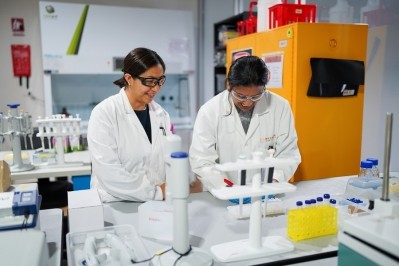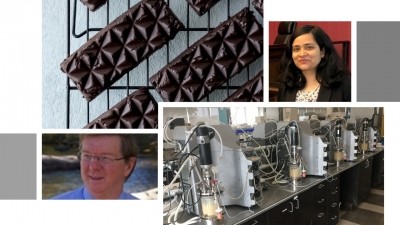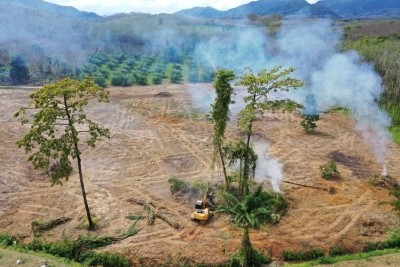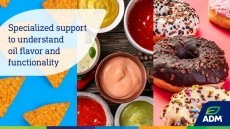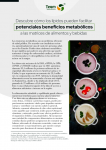‘It’s such a clear pain point for formulators…’ Yali Bio joins race to create more ‘animal-like’ fats in meat, dairy alternatives
![Yulin Lu: 'Fat is such a clear pain point [for meat and dairy alternatives...]' Image credit: Yali Bio](/var/wrbm_gb_food_pharma/storage/images/_aliases/wrbm_large/publications/food-beverage-nutrition/foodnavigator-usa.com/article/2022/03/08/it-s-such-a-clear-pain-point-for-formulators-yali-bio-joins-race-to-create-more-animal-like-fats-in-meat-dairy-alternatives/13301626-2-eng-GB/It-s-such-a-clear-pain-point-for-formulators-Yali-Bio-joins-race-to-create-more-animal-like-fats-in-meat-dairy-alternatives.jpg)
“Fat is such a clear pain point [for meat and dairy alternatives] that it’s definitely an emerging space, with companies trying to use innovative approaches to make fats and lipids,” Yali Bio co-founder and CEO Yulin Lu told FoodNavigator-USA. “To reach a much broader consumer base, we have to make a better product.”
One of a new wave of startups creating ‘designer fats’ for meat and dairy alternatives (checkout our interview with Lypid from last week), Yali Bio is deploying synthetic biology to genetically engineer microbes - specifically oleaginous fungi - to produce fats that behave like animal fat, and come without the environmental baggage of some plant-based hard fats such as palm and coconut.
Coconut oil has a far lower melting point than, say, beef tallow
Speaking to us after raising a $3.9m seed round* (bringing the firm’s total funding to $5m), Lu said coconut oil - the go-to hard fat for most plant-based meat formulators - has a relatively low melting point and tends to leak out of the ‘meat’ matrix during cooking, making for a drier, less juicy texture in the final product.
It also doesn’t smell like pork or beef fat, says Lu, a biochemical engineer with extensive experience in microbial fermentation through working at Solazyme (which developed ‘algae butter’ using genetically engineered microalgae), and Impossible Foods (which uses genetically engineered yeast to produce its flagship ‘heme’ protein).
“I think the reason the industry used coconut oil is because it was readily available and the focus was on other other elements of making plant-based meat,” said Lu, who also spent three years at Hampton Creek (now Eat Just) working on plant proteins.
“But coconut oil melts at around 25°C [whereas beef tallow melts around 42-45°C], so when you put plant-based meat [containing coconut oil] on the grill, it will melt fast and leak out.
“The second part, is that it doesn't deliver the flavor of animal fat, so if you're making chicken or beef or pork, you have to use flavor additives, so these are pretty clear limiting factors in this space. The fat delivers the flavor, so if you can make animal fats [with microbes], you don’t need to add all those flavor additives.”
Oleaginous fungi - which Yali Bio is working with - are capable of accumulating 20%–80% of their dry biomass into lipids
Using synthetic biology, Yali Bio is effectively programming fungi cells to produce animal-like fats… without animals, designing fats with specific functional properties or melting points and biosynthesizing them more efficiently than living breathing animals or even animal cells in bioreactors (an approach adopted by some startups such as Mission Barns, which is growing fat cells directly), claimed Lu.
While there is some downstream processing involved - Yali Bio has to extract the fats from the fungi cells it is using and then separate the fat from the fungi cell biomass - it’s still a pretty efficient way to produce fat, claimed Lu, who says Yali Bio has filed a suite of patents around its technology.
“Many microbes naturally accumulate fat, and there’s a class of microbes called oleaginous microorganisms [oleaginous fungi - which Yali Bio is working with - are capable of accumulating 20%–80% of their dry biomass into lipids], that naturally produce a lot of fat, so we’re tapping into nature's ability to make these compounds. Using a microbe-based system we can substantially increase the carbon efficiency.”
Downstream processing and purification
As for downstream processing and purification, he said: “Recovering fats is very different compared to recovering proteins [that are made in fermentation tanks]. Proteins are much more heat sensitive than fats, and you get a higher percentage recovery.”
Asked what happens to the remaining cell biomass once the fat has been removed, he said: “Once you extract the fat, you're left with cell biomass, the natural protein that comes with cells, and then some residual fats component, so this could be an interesting product for feed applications, but it remains to be tested.”
‘Our approach is to look at fats made by different animals and try to make them in microbes’
So what kinds of fats can Yali Bio make using its fungi-powered fat platform? “Our approach is to look at fats made by different animals and try to make them in microbes,” he said. “Fish fat has a very different composition to beef or pork fat, for example.”
But are Yali Bio’s fats bio-identical to those produced by animals, which is presumably a key question from a regulatory perspective?
“So that's a key consideration for us, to prioritize composition targets and the similarity or close proximity of the compositions to animal fats [vs animals]," he noted. “But fat actually has a very complex chemistry and we use different systems to make it, so I think you can make it in high proximity [to animal fats], but not entirely the same.”
As for how such fats might be labeled on an ingredients list in the US, that’s still up for discussion, said Lu, who will use the funding secured in the latest round to expand the team and get some fats into the hands of food formulators to experiment with.
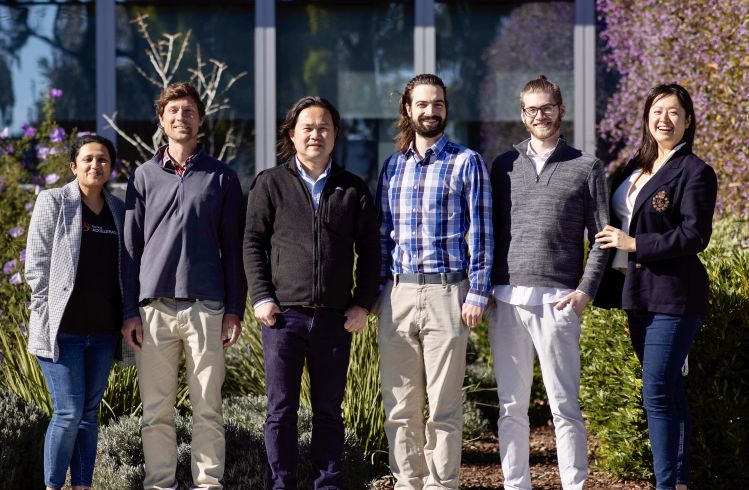
Precision fermentation for fats
While so-called ‘precision fermentation’ is best-known for producing proteins such as collagen (Geltor), whey (Perfect Day), casein (Change Foods), albumin (The EVERY Company), and myoglobin (Motif FoodWorks) without animals, it’s also gaining traction as a means to produce designer fats, something TerraVia (later acquired by Corbion) started to explore several years ago with ‘algae butter’ made via engineered microalgae.
Change Foods and Perfect Day are both working on producing dairy fats via microbial fermentation, while Nourish and Yali Bio are exploring a variety of animal-like fats produced via engineered microbes.
And right now, the market is wide open, said Chuck Templeton, managing partner at S2G Ventures, which participated in Yali Bio’s latest funding round.
“High quality fats are currently a major weak point when developing plant-based analogs for animal proteins. We are excited to invest in Yali Bio to improve this crucial component of plant-based products with the goal of enhancing the consumer experience while reducing the impacts of conventional animal husbandry.”
*The seed round was led by Essential Capital with participation from new and existing investors: Third Kind Venture Capital, S2G Ventures, CRCM Ventures, FTW Ventures and First-in Ventures. Stephanie Sher and John Goldsmith also participated as angel investors.
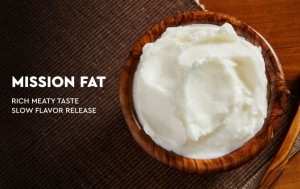
The race is on to create more ‘animal-like’ fats for meat alternatives with better functionality, flavor, and environmental credentials, with some firms such as Mission Barns creating ‘real’ animal fat (without animals) in bioreactors from animal cells; and others such as Yali Bio, Zero Acre Farms, c16 Biosciences, and Nourish producing animal-like fats via engineered microbes.
Motif FoodWorks meanwhile, is developing oleogels that trap liquid oils within an ethyl cellulose scaffold to create oleogels that can be co-extruded with plant-based proteins, creating a “veining and marbling effect;” while Lypid is microencapsulating liquid oils such as sunflower to create vegan emulsions with very high melting points.
